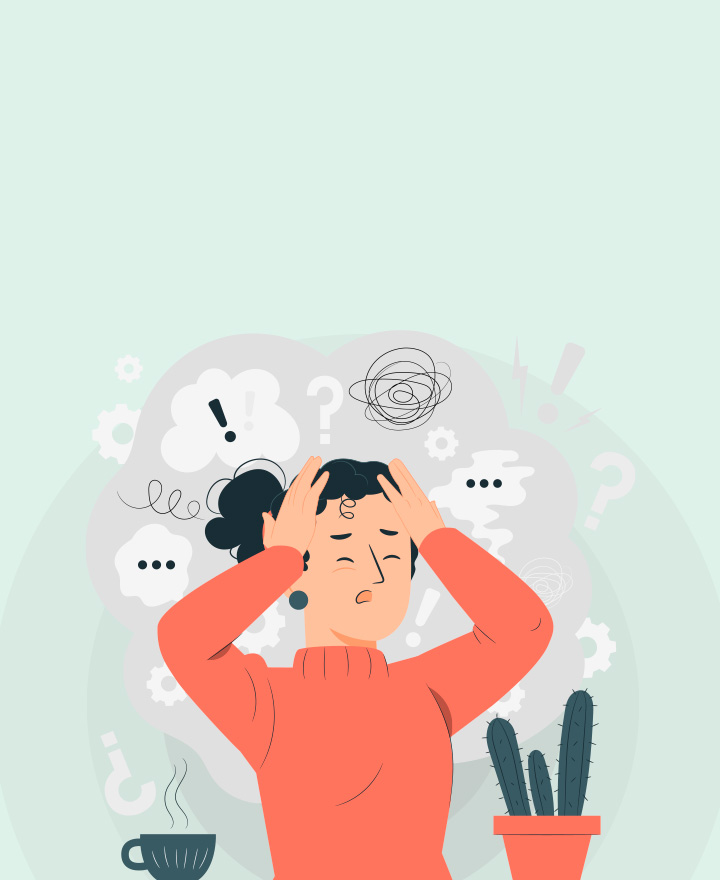

Can Rainy Weather Cause Migraine?
Many people experience headaches or migraines during rainy weather, leading to the question: can rainy weather cause migraines? This blog explores the relationship between rainy weather and migraines, the potential triggers and management strategies.
Weather-Related Triggers
Although the exact reasons are not fully understood, several weather-related factors may contribute to migraines. When it comes to answering, can rainy weather trigger migraines?, research suggests it might, along with other atmospheric changes. Here are some potential triggers:
• Barometric pressure changes
• High humidity
• Temperature fluctuations
• Bright or flickering light from lightning
These factors can affect the body in various ways, potentially leading to headaches or migraines in susceptible individuals. It's important to note that not everyone experiences weather-related migraines, and triggers can vary from person to person.
Coping Strategies
For those wondering how to avoid weather-related migraines, several strategies may help manage symptoms during rainy weather:
• Keep a migraine diary to identify patterns
• Stay hydrated
• Maintain a consistent sleep schedule
• Practice stress-reduction techniques
Engaging in regular exercise and opting for a nutritious, balanced diet may also help reduce the frequency and severity of weather-related migraines. Some people find that using blackout curtains or wearing sunglasses on overcast days can help reduce light sensitivity.
Medical Treatments
It’s worth noting that various treatment options exist for migraines. These may include:
• Over-the-counter (OTC) pain relievers
• Prescription medications
• Alternative therapies
Consulting a healthcare professional is vital to ascertain the most appropriate treatment plan for individual needs. Healthcare providers can offer personalised advice and may recommend preventive measures or medications based on the frequency and severity of migraines.
FAQs
1. Can changes in weather patterns affect migraine frequency?
Yes, some people report more frequent migraines with weather changes. This can include shifts in seasons or sudden weather fluctuations.
2. Are there any foods that might help prevent weather-related migraines?
Some people find that certain foods may help, such as:
◦ Ginger
◦ Foods rich in magnesium
However, dietary effects can vary significantly between individuals.
3. Can using a weather app help predict potential migraine days?
Some people find weather apps helpful. However, apps specifically designed for migraine tracking may be more useful.
4. Is it possible to become more sensitive to weather-related migraines over time?
Some individuals report increased sensitivity as they age. Others may develop better coping mechanisms over time.
5. Can indoor environments help reduce weather-related migraine risks?
Controlled indoor environments may help some individuals. Maintaining consistent temperature and humidity levels indoors could be beneficial.
Conclusion
So, does rainy weather cause migraines? While it's not accurate to say that rainy weather directly causes migraines, it can certainly be a trigger for some individuals. Understanding personal triggers and implementing coping strategies can help manage weather-related migraines. It's important to remember that everyone's experience with migraines is unique; what works for one individual may not work for another.
One of the important components of our overall wellness is also being financially secured. Healthcare emergencies can happen any time, but a good health insurance policy can protect you from such uncertain situations. To know more about Wellness and other health related tips, visit the wellness corner.
Source: mayoclinic.org, webmd.com, healthline.com, medicalnewstoday.com, americanmigrainefoundation.org
Disclaimer: This blog provides general information and discussions about health and related subjects. The information and other content provided in this blog, website or in any linked materials are not intended and should not be considered, or used as a substitute for, medical advice, diagnosis or treatment. Kindly contact your Doctor before starting a new medicine or health regime.
Related Articles
Headaches during yoga practice
Sudden Blurry Vision in Both Eyes - Causes, And Treatment
Stress - Signs, Symptoms, Consequences & Prevention
Published on October 3, 2024














 Health Insurance
Health Insurance  Travel Insurance
Travel Insurance  Car Insurance
Car Insurance  Cyber Insurance
Cyber Insurance  Critical Illness Insurance
Critical Illness Insurance
 Pet Insurance
Pet Insurance
 Bike/Two Wheeler Insurance
Bike/Two Wheeler Insurance  Home Insurance
Home Insurance  Third Party Vehicle Ins.
Third Party Vehicle Ins.  Tractor Insurance
Tractor Insurance  Goods Carrying Vehicle Ins.
Goods Carrying Vehicle Ins.  Passenger Carrying Vehicle Ins.
Passenger Carrying Vehicle Ins.  Compulsory Personal Accident Insurance
Compulsory Personal Accident Insurance  Travel Insurance
Travel Insurance  Rural
Rural